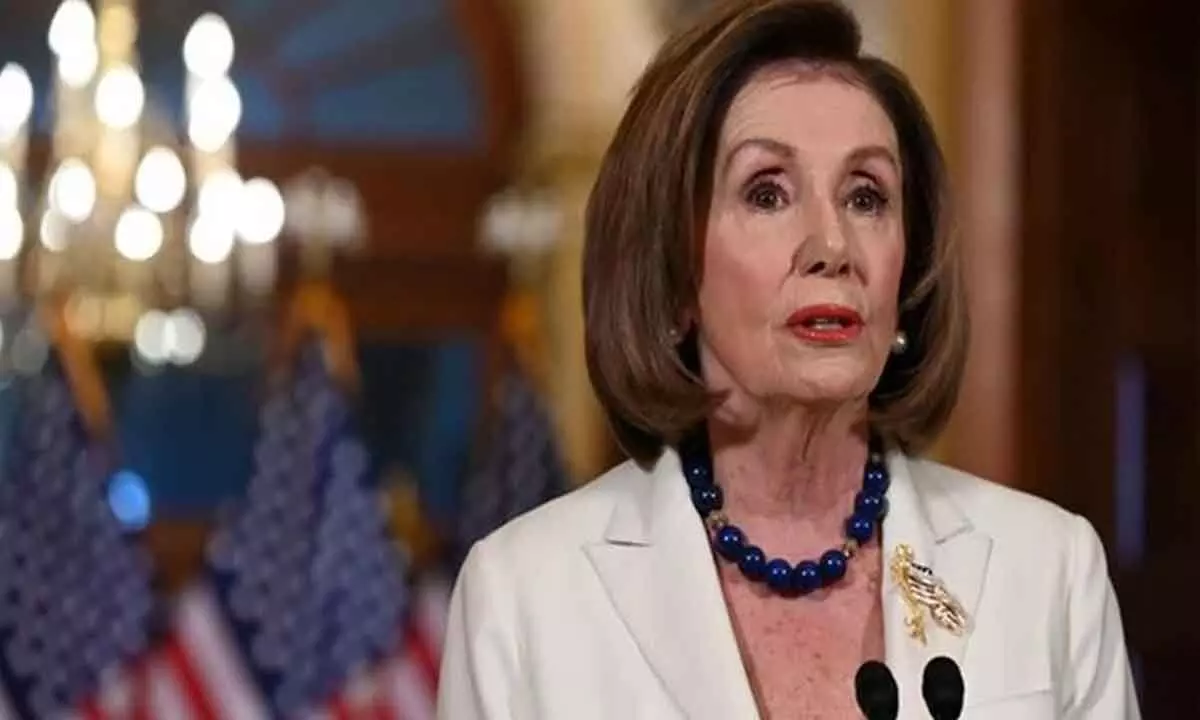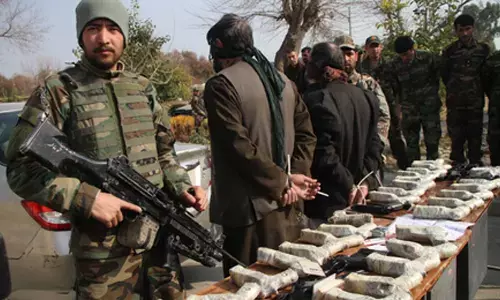Pelosi arrives in Malaysia, tensions rise over Taiwan visit

US. House Speaker Nancy Pelosi
US. House Speaker Nancy Pelosi arrived in Malaysia on Tuesday for the second leg of an Asian tour that has been clouded by an expected stop in Taiwan, which would escalate tensions with Beijing.
US. House Speaker Nancy Pelosi arrived in Malaysia on Tuesday for the second leg of an Asian tour that has been clouded by an expected stop in Taiwan, which would escalate tensions with Beijing.
The plane carrying Pelosi and her delegation touched down at an air force base amid tight security, national news agency Bernama reported.
While there have been no official announcements, local media in Taiwan reported that Pelosi will arrive in Taipei on Tuesday night, becoming the highest-ranking elected U.S. official to visit in more than 25 years.
The United Daily News, Liberty Times, and China Times — Taiwan's three largest national newspapers — cited unidentified sources as saying she would fly to Taipei and spend the night after visiting Malaysia.
China, which regards Taiwan as its territory, has warned of repercussions, saying its military will "never sit idly by'' if Pelosi pushes ahead with the visit.
The White House on Monday decried Beijing's rhetoric, saying the U.S. has no interest in deepening tensions with China and "will not take the bait or engage in saber rattling." White House National Security Council spokesperson John Kirby underscored that the decision on whether to visit the self-ruled island was ultimately Pelosi's.
He noted that members of Congress have routinely visited Taiwan over the years.
Kirby said administration officials are concerned that Beijing could use the visit as an excuse to take provocative retaliatory steps, including military action such as firing missiles in the Taiwan Strait or around Taiwan, or flying sorties into Taiwan's airspace and carrying out large-scale naval exercises in the strait.
"Put simply, there is no reason for Beijing to turn a potential visit consistent with long-standing U.S. policy into some sort of crisis or use it as a pretext to increase aggressive military activity in or around the Taiwan Strait," Kirby said.
U.S. Secretary of State Antony Blinken also urged China to "act responsibly" in the event that Pelosi proceeds with the visit.
"If the speaker does decide to visit, and China tries to create some kind of a crisis or otherwise escalate tensions, that would be entirely on Beijing," he told reporters at U.N. headquarters in New York.
"We are looking for them, in the event, she decides to visit, to act responsibly and not to engage in any escalation going forward." China has been steadily ratcheting up diplomatic and military pressure on Taiwan. Threats of retaliation for a visit by Pelosi have driven concerns of a new crisis in the Taiwan Strait, which separates the two sides, that could roil global markets and supply chains.
Beijing sees official American contact with Taiwan as an encouragement to make the island's decades-old de facto independence permanent, a step U.S. leaders say they don't support. Pelosi, head of one of three branches of the U.S. government, would be the highest-ranking elected American official to visit Taiwan since then-Speaker Newt Gingrich in 1997.
Pelosi kicked off her Asian tour in Singapore on Monday but her purported visit to Taiwan has raised concerns in the region.
Singapore Prime Minister Lee Hsien Loong "highlighted the importance of stable U.S.-China relations for regional peace and security" during talks with Pelosi, the city-state's foreign ministry said.
This was echoed by Japan's Foreign Minister Yoshimasa Hayashi in Tokyo, who said stable ties between the two rival powers "are extremely important for the international community as well." Taiwan and China split in 1949 after the Communists won a civil war on the mainland. Both sides say they are one country but disagree over which government is entitled to national leadership.
They have no official relations but are linked by billions of dollars of trade and investment.
The United States switched diplomatic recognition from Taipei to Beijing in 1979 but maintains informal relations with the island. Washington is obligated by the Taiwan Relations Act, a federal law, to see that Taiwan has the means to defend itself.
Washington's "One China policy," says it takes no position on the status of the two sides but wants their dispute resolved peacefully.
Beijing promotes an alternative "One China principle" that says they are one country and the Communist Party is its leader.
Pelosi is expected to call on lower house Speaker Azhar Azizan Harun in Parliament before adjourning for a luncheon meeting with Prime Minister Ismail Sabri Yaakob, Bernama said.
On Thursday, she is to meet with South Korean National Assembly Speaker Kim Jin Pyo in Seoul for talks on security in the Indo-Pacific region, economic cooperation, and the climate crisis, according to Kim's office.
Pelosi is also due to visit Japan, but it is unclear when she heading there.














